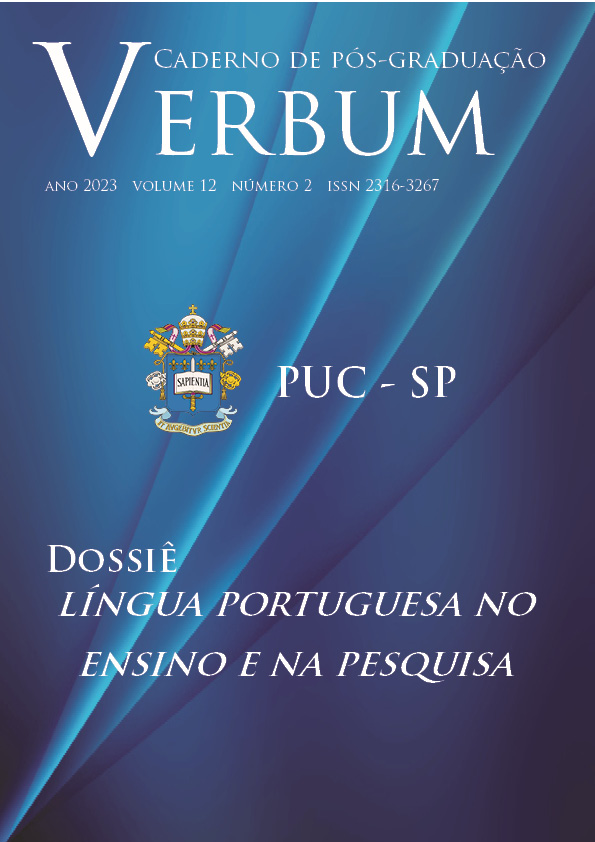THE CITY OF BISSAU IN NO FUNDO DO CANTO, BY ODETE SEMEDO
DOI:
https://doi.org/10.23925/2316-3267.2023v12i2p32-51Abstract
The present work aims to analyze six poems from the work No Fundo do Canto (2007) by the Guinean poet Odete Semedo, entitled “O teu messenger”, “O preúncio dos treshundas e thirty-three days”, “When it all started Bissau did not want to believe”, “Lost, bewildered”, “Bissau is an enigma”. The book can be understood as a contemporary epic, constituted by the female voice that presents several lines that compose her poetry. The research was carried out in bibliographic sources and is based on the critical reading of Moema Parente Augel's texts “Cantopoema do desassossego” (2003), afterword to the book No Fundo do Canto, and O Desafio do Escombro: nation, identity and post-colonialism in the literature of Guinea Bissau (2007), in the work of Monaliza Rios Silva Guinea-Bissau No Fundo do Canto: O epico identitário de Odete Semedo (2010), in the doctoral thesis of Maria Odete da Costa Soares Semedo As Mandjuandadi: songs of women in Guinea-Bissau: from oral tradition to literature (2010) and recent studies on the city through the work All cities, the city (2008), by Renato Cordeiro Gomes. In general, it is clear that, in the poetry of No Fundo do Canto, the lyrical voice is focused on the feeling of how the country is presented and seen by their children as a fertile and welcoming land, referring to the figure of women in their ability to generate and welcome a new life inside your womb. In this perspective, Bissau is described as the land that welcomes, protects and fights so that its people are not abandoned and alone in the face of the armed military conflict that arises within the Guinean nation.References
AUGEL, Moema Parente. O Desafio do Escombro: nação, identidade e pós- colonialismo na literatura da Guiné-Bissau. Rio de Janeiro: Garamond, 2007a.
AUGEL, Moema Parente. Posfácio: Cantopoema do desassossego. In: SEMEDO, Odete Costa. No Fundo do Canto. Belo Horizonte: Nandyala, 2007b.
GOMES, Renato Cordeiro. Todas as cidades, a cidade: literatura e experiência urbana.
Rio de Janeiro, 2008.
PAIGC, 2003. http://www.paigc.net/historia.html. Acesso em 07/10/2018, às 23h42min.
SEMEDO, Maria Odete da Costa Soares. As Mandjuandadi: cantigas de mulher na Guiné-Bissau: da tradição oral à literatura, 2010.
SEMEDO, Odete Costa. No Fundo do Canto. Belo Horizonte: Nandyala, 2007.
SILVA, Monaliza Rios. A Guiné-Bissau No Fundo do Canto: O épico identitário de Odete Semedo. Guarabira: UEPB, 2010.


